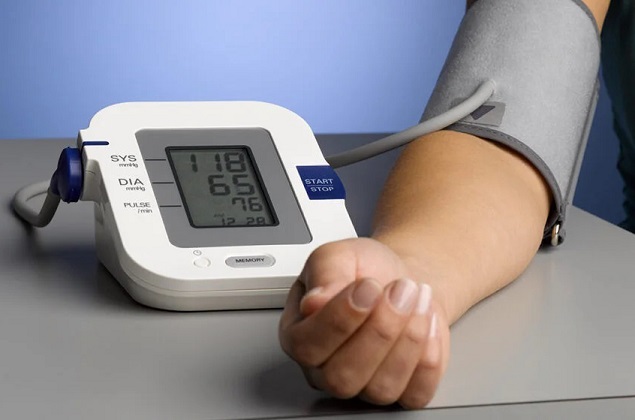Nikhil Prasad Fact checked by:Thailand Medical News Team Nov 07, 2025 3 months, 6 days, 15 hours, 59 minutes ago
Medical News: COVID-19 and the Heart
A new multicenter Italian study has revealed that people with high blood pressure who were infected with COVID-19 often struggle more to keep their blood pressure under control due to increased stiffness in their arteries. The research was conducted by scientists from the University of Bari Aldo Moro, Federico II University of Naples, the University Hospital of Foggia, the “C. Poma” Hospital in Mantua, and Terni University Hospital.
 COVID-19 Infection Found to Make Blood Pressure Harder to Control
COVID-19 Infection Found to Make Blood Pressure Harder to Control
The team compared 185 hypertensive patients who had recovered from COVID-19 with 97 hypertensive individuals who never had the infection. This
Medical News report found that those who had been infected showed worsening blood pressure readings and needed more medications to control their hypertension even months after recovery.
COVID-19’s Lasting Impact on Arteries
The researchers discovered that COVID-19 doesn’t only harm the lungs—it also causes long-lasting damage to blood vessels. The virus enters the body through a receptor called ACE2, which is abundant in blood vessel linings. When SARS-CoV-2 binds to ACE2, it triggers inflammation and reduces the protective functions of the blood vessels. This leads to what doctors call “endothelial dysfunction,” which makes arteries stiffer and less flexible.
At follow-up, patients who had recovered from COVID-19 showed a clear increase in pulse wave velocity, a scientific measure of arterial stiffness. This was accompanied by a rise in systolic blood pressure (the top number in a BP reading) and a decline in diastolic pressure (the bottom number). These changes suggest that the heart and vessels are under added strain long after the infection has cleared.
More Drugs Needed to Control Hypertension
The study also showed that patients in the post-COVID group were prescribed more antihypertensive medications than before their infection. Particularly, there was a noticeable rise in the use of angiotensin-receptor blockers, a common class of drugs used to control blood pressure. By contrast, patients who never had COVID-19 showed no significant change in either their blood pressure readings or their medication needs.
Moreover, the number of new diagnoses of hypertensive heart disease—damage caused by long-term high blood pressure—was higher in those who had contracted COVID-19, suggesting the infection accelerated cardiovascular aging and damage.
Hidden Dangers Beyond the Infection Phase
The findings support earlier research showing that even mild COVID-19 infections can lead to prolonged cardiovascular problems. Increased arterial stiffness means the heart must work harder to pump blood through the body, which can raise the risk of stroke, heart attack, and other complications.
Scientists believe that persistent inflammation and immune system imbalance, known to linger after COVID-19, may play a role in this process. These
effects may continue for months or even years, silently increasing cardiovascular risks in previously stable patients.
Why This Matters
The researchers urge that anyone with high blood pressure who has had COVID-19 should undergo regular cardiovascular monitoring, even after apparent recovery. Maintaining good blood pressure control becomes crucial, as small but sustained increases in systolic pressure can significantly raise the risk of heart and vascular disease over time.
They also suggest that future studies should investigate whether medications such as SGLT2 inhibitors or GLP1 receptor agonists—known for protecting vascular health—could help counteract COVID-19-related vascular damage.
The study findings were published in the peer-reviewed journal: Internal and Emergency Medicine.
https://link.springer.com/article/10.1007/s11739-025-04138-4
For the latest COVID-19 News, keep on logging to Thailand
Medical News.
Read Also:
https://www.thailandmedical.news/articles/coronavirus
